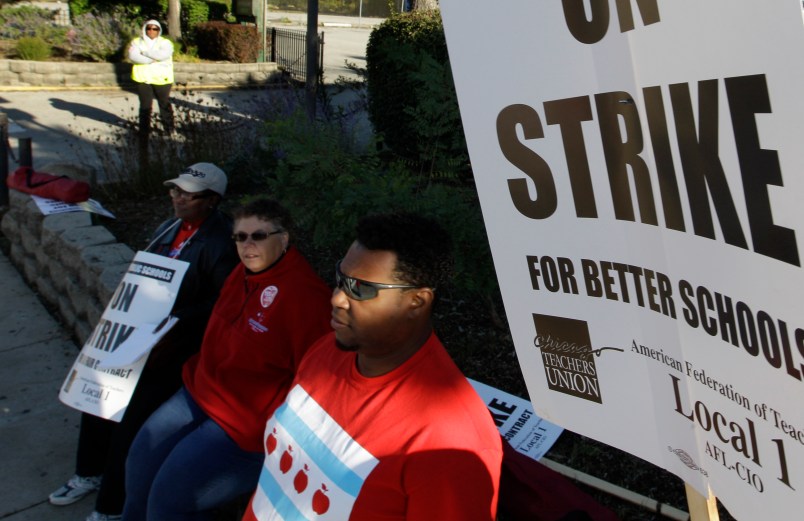This is part of TPM Cafe Book Club for Jake Rosenfeld’s What Unions No Longer Do.
It may well be true that public sector union members are more likely to be college-educated than their private sector counterparts, but educational attainment is not the only measure of privilege. As Rosenfeld himself notes in chapter two of What Unions No Longer Do, women are far more heavily represented in public sector unions than in the labor movement writ large. But while public sector labor gets high marks for relative gender parity, the same cannot be said for racial diversity: In both government and private enterprise, black workers make up slightly less than 11 percent of all union members.
This is despite the fact that black workers are 30 percent more likely to be employed in the public sector than non-black workers, according to Dr. Steven Pitts of the UC-Berkeley Labor Center. Relative to both private sector union density and African-American public employment, public sector unions — with some notable exceptions — look surprisingly white.
Rectifying that disparity doesn’t just mean organizing a greater proportion of the private sector. For the sake of both racial justice and its own legitimacy as a social movement, organized labor in the public sector must expand its membership to more closely reflect the profile of the government’s workforce overall. A disproportionately white and college-educated movement is going to have a hard time proving that it stands for something beyond just the interests of its dues-paying members.
Of course, it’s easy for some beard-stroking armchair strategist to say public sector unions need to do more unionizing. Doing it is something else entirely, especially when government employees are already fighting for their lives. Dr. Rosenfeld has already outlined some of the tactics which organized labor’s enemies are using to undermine public sector unionism, but he didn’t mention one of the most remarkably successful lines of attack in recent years: The campaign to shrink the government workforce. Thanks to a combination of austerity and recent changes to labor law on the state and local levels, anti-union forces have managed to bring government employment down to its lowest level in nearly half a century.
This is a matter of grave concern for both public sector unions and black government employees, regardless of whether they belong to a union. Both see their livelihoods threatened by a relentless assault from above. And if their common enemy is victorious, there will likely be very grim consequences for both a fading labor movement and a black community already suffering from chronically high unemployment.
If there’s any good news here, it’s that a common enemy implies a common solution. Organized labor desperately needs to prevent its public sector membership base — its last major bulwark against oblivion — from being wiped out. And as for racial justice organizations: As Pitts mildly puts it, “any analysis of the impact to society of additional layoffs in the public sector as a strategy to address the fiscal crisis should take into account the disproportionate impact that reductions in government employment have on the Black community.” Both these wings of the activist left have a significant interest in staunching the rapid bleed of public sector employment.
But we can go a step further than that. The solution isn’t just to stop the bleeding, but to provide a major blood transfusion: Massive job creation in the public sector. Some new public sector jobs might not be union. But some of them almost certainly would be, and at the very least a national push for more government employment would take the momentum away from those agitating for layoffs in unionized, public sector fields. Just as importantly, growth in the government employment would make public sector unionism more viable as the primary site for labor movement consolidation and expansion.
Similarly, targeted expansion in government employment is a great way to address the black unemployment crisis and chip away at America’s widening racial income gap. Duke public policy Prof. Sandy Darity and others (including one Dr. Martin Luther King, Jr.) have even called for a federal job guarantee program as a way to ameliorate persistent racial inequities. But even a job creation policy that stops short of guaranteed universal employment would do some good.
Labor organizations like AFL-CIO are certainly already lobbying for job creation, but thus far they’ve confined their demands to a call for Washington to stimulate private sector job growth. Why not agitate for Washington to take the more direct route, and create its own jobs? And why not frame the issue explicitly as one of not just economic justice, but racial justice? Not only could that be the key to building more union strength in the public sector; it could also bring more people of color into public employee unions, amplifying the labor’s pluralism and status as a social movement.
Ned Resnikoff is a reporter at msnbc.com, covering issues of class, labor, inequality and climate change.






